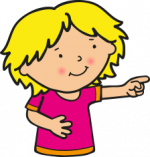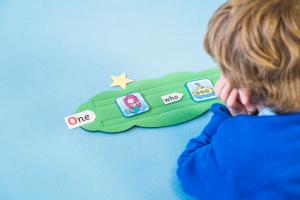Are the Children in Your Class Struggling with Writing?
The art of writing is an essential skill for us all.
Imagine how much harder our daily lives would be if we couldn’t communicate our thoughts and ideas, unless somebody was stood in the same room.
Writing isn’t just about becoming an author (although that’s a brilliant outcome if you can manage it!). Acquiring the skills to become ‘a writer’ is a lifelong journey, changing over time as we learn to communicate more effectively. The sooner we can get to grips with literacy and make ourselves understood, the better.
But from the very outset, for so many children, the process of ‘becoming a writer’ seems inconceivably hard. It has so many components that are challenging to master, like holding a pencil in the right way, or coming up with an idea… and you can’t just learn one thing and hope for the best. Everything needs to be combined, or the parts you’ve gathered won’t make sense.
No wonder putting those first sentences together can feel like composing a novel!
Unfortunately, a lot of children count themselves out from the start.
“I’ll never be able to do that.”
“I want to do something else.”
“This is too hard.”
“I’m not having any fun.”
You can’t blame children for not always feeling up to the challenge. For some, the odds simply aren’t in their immediate favour.
They may have limited vocabulary, or find pencil control difficult. They may struggle to connect and remember ideas.
Alongside this, from a teaching perspective, there is a lot to cover - and quickly!
Yet somehow, we have to bring children with us on this journey. We need to find a way of engaging them, so they believe in themselves… as well as making sense of all the things they are taught, in a confident and skilful way.
It’s tough – but it’s possible.
We have to simplify the complex so they can write with intricacy. We need to lose the mystery so they can create with fascination!
And the place to start… children’s imagination!
All children have an imagination.
 We may need to draw it out of them. They may need plenty of encouragement. But once they understand how to unlock it then the sky’s the limit!
We may need to draw it out of them. They may need plenty of encouragement. But once they understand how to unlock it then the sky’s the limit!
Once children can imagine, connect, extend, edit, recall and repeat ideas, they’ll become masters of experimenting with language. This is the essence of being a wordsmith. They just need to be able to write it down!
How we teach this is crucial.
We need to model ideas and concepts visually, so children can begin to mimic this in their heads.
This includes planning and rearranging ideas in increasingly sophisticated ways, so children can apply this understanding to any genre and can become inventive and unique in their own particular writing style.
Modelling the construction of sentences in a visual way with pictures and symbols, alongside the introduction of an increasingly broad and sophisticated vocabulary, can be a powerful way to help children create, organise, and connect sentences in their heads.
Modelling and transcribing these sentences - even before children can do so for themselves - helps them to understand ‘how’ to be a writer and to communicate their thoughts in an organised way.
Over time, this process can become increasingly elaborate. All the while, children are growing increasingly confident with what it means to be a writer - and increasingly equipped to become self-motivated and independent in doing so.
How Mighty Writer helps children who are struggling with writing
Founder Emma Ralph discusses how mighty writer can transform literacy in your classrooms overnight - 34secs

Mighty Writer allows children to plan and write their own stories using just pictures, right through to creating increasingly complex sentences and story structures. This gives children permission to explore and rehearse ideas freely.

